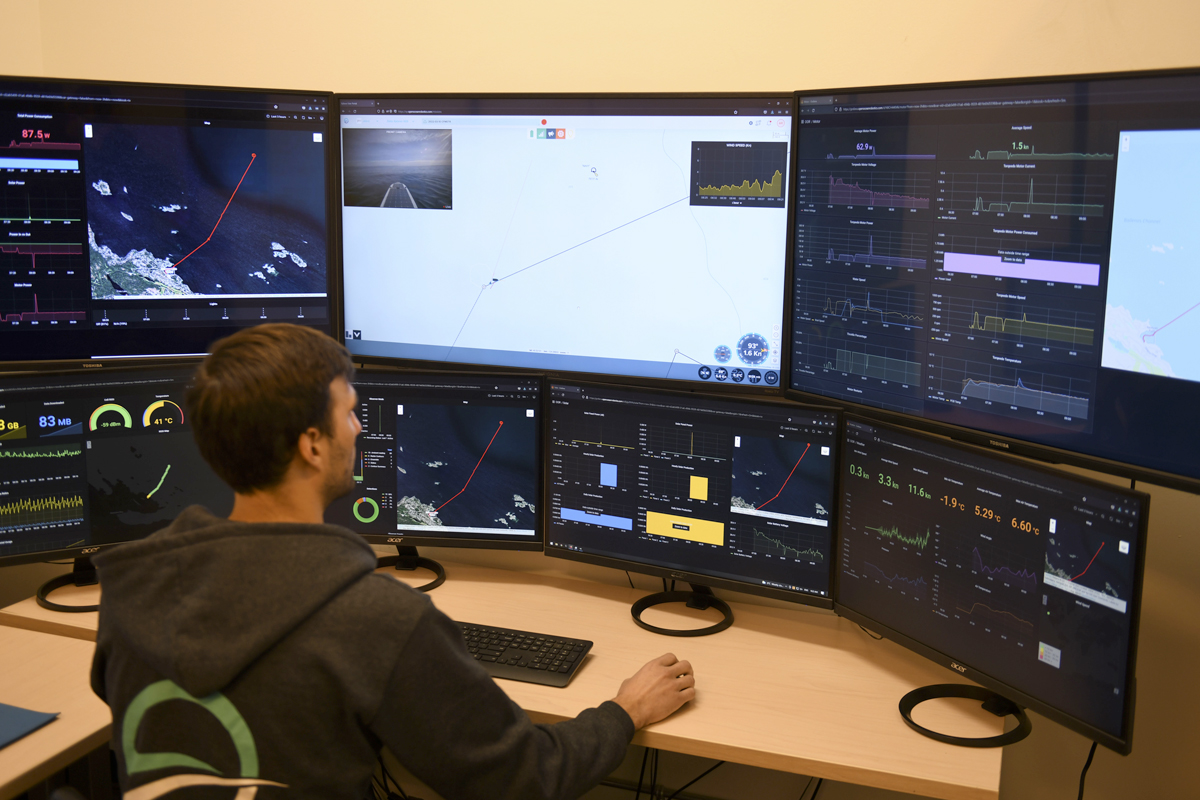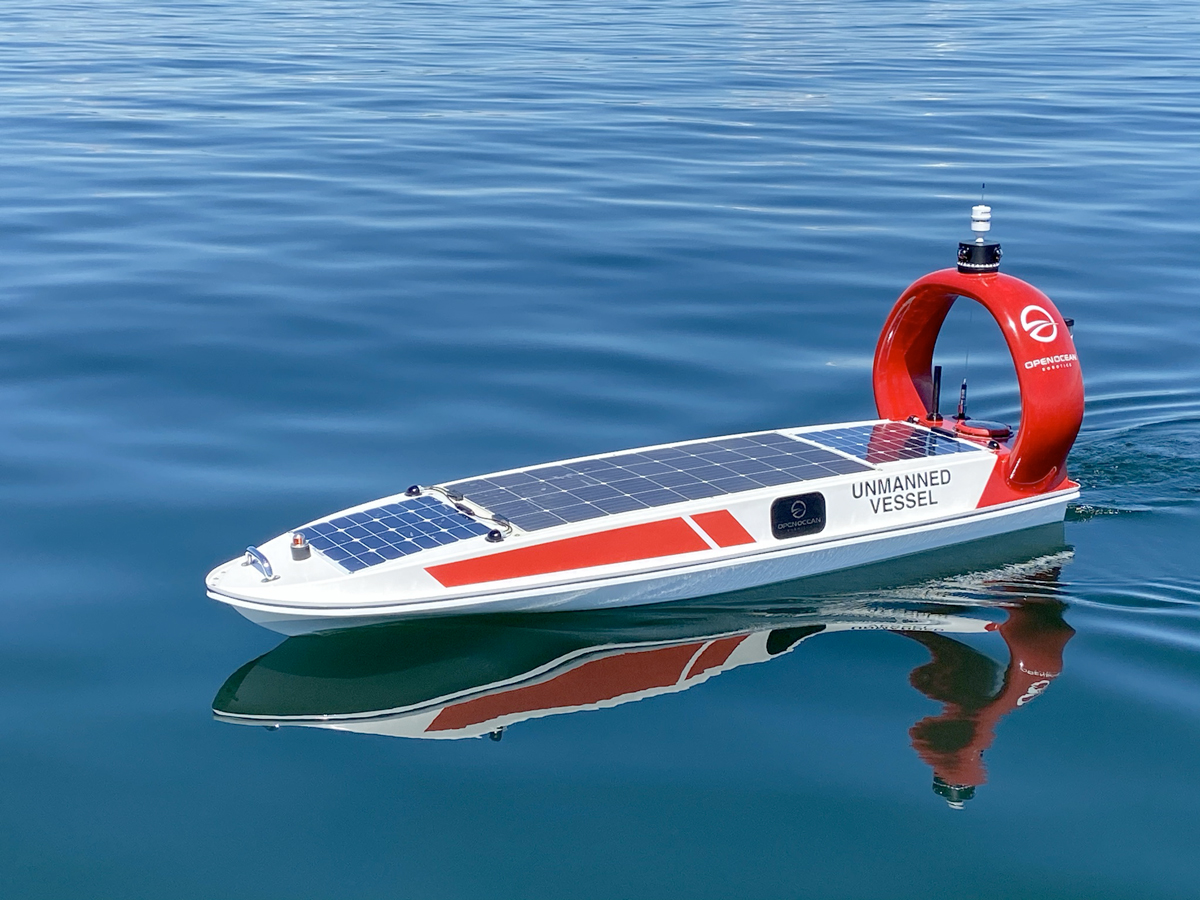National Defence and industry work together to protect marine mammals
By Lookout Production on Mar 21, 2022 with Comments 0
MARPAC Public Affairs Office
Royal Canadian Navy
—
Testing of the surf-board shaped Data Xplorer, a solar powered ocean drone, continued March 10 in the waters by Canadian Forces Maritime Experimental and Test Ranges near Nanoose Bay.
Defence Research and Development Canada (DRDC) and Canadian Armed Forces (CAF) researchers conducted a second field trial of the unmanned surface vessel (USV) that may eventually be used to mitigate harm to whales and other marine mammals during military operations. The first testing under this collaboration took place off Cattle Point in December.
As it bobbed along the waves, the USV harvested ocean data through a towed passive hydrophone array, and sent processed data via satellite to a command centre. The field trial was to validate the drone’s ability to detect and identify marine mammals, and estimate the location using the acoustic recordings of their unique calls.
DRDC researchers played simulated whale calls from a fixed point in the Test Range. As the Data Xplorer navigated the water, the data sent back demonstrated it was able to accurately detect and classify the sounds, and estimate where they came from in real time.
While the analysis took place at the Test Range in Nanoose, approximately 110 kilometres away from Victoria, the movement of the Data Xplorer was remotely controlled by Open Ocean Robotics staff in their Victoria office. The solar-powered drone was piloted remotely for the testing, and is capable of safe autonomous transit along a predetermined course using Automated Identification System data, a radar reflector, and maps to avoid collisions. It can also right itself in rough seas – up to sea state five.
This second trial brought the reality of a marine mammals risk mitigation decision-making tool one step closer to fruition.
Innovation, Science, and Economic Development Canada worked with DRDC through the Innovative Solutions Canada program to enable this research. Technology was co-developed with locally based JASCO Applied Sciences, and a Victoria-based startup called Open Ocean Robotics, which provides a clean-tech solution to collecting data through solar-powered un-crewed surface vessels.
DND and the CAF are committed to environmental stewardship and mitigating the impact of active sonar on the marine environment, as part of the Government of Canada’s Oceans Protection Plan. DRDC, the science and technology organization of DND, is pursuing multiple, interconnected avenues of research to develop solutions to support this commitment.

Ari Robinson, Open Oceans Robotics mechanical engineering lead, controls the Data Xplorer USV (Un-crewed Service Vessel) from their headquarters in Victoria. The vessel being controlled is at Canadian Forces Maritime Experimental and Testing Ranges at Nanoose Bay.
Photo: MCpl Nathan Spence, MARPAC Imaging Services, Esquimalt
Filed Under: Top Stories
About the Author:






